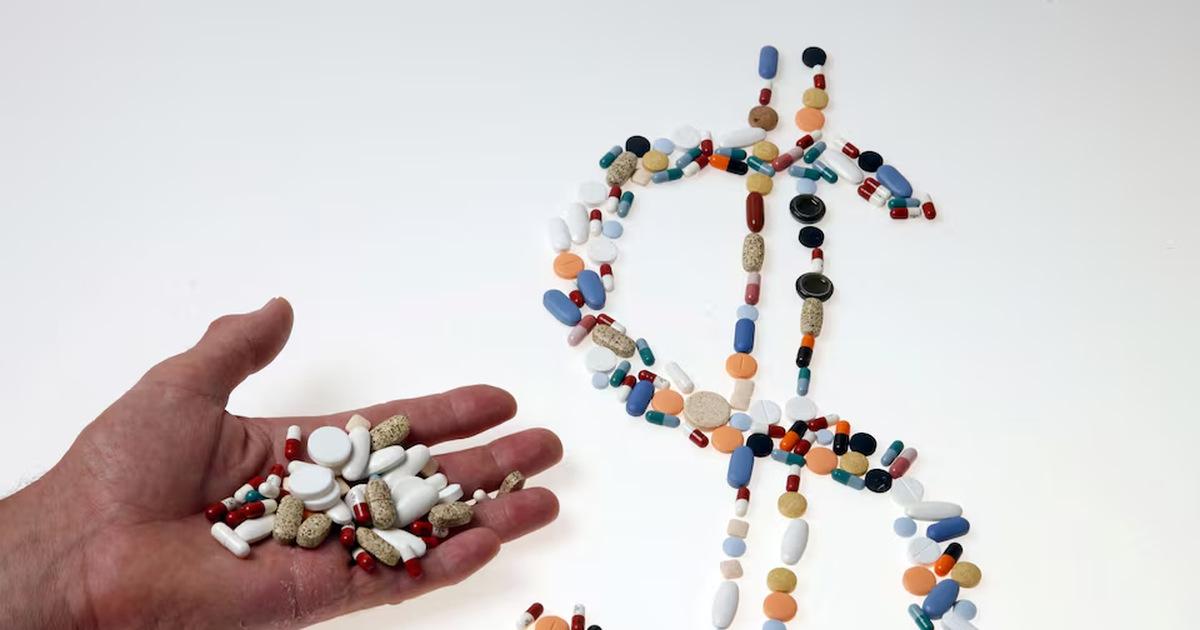The US Food and Drug Administration’s (USFDA)’s new draft guidelines aimed at speeding up and reducing the cost of developing biosimilars — lower-priced, near-replicas of complex biologic medicines — could significantly benefit Indian biotech companies.

Photograph: Srdjan Zivulovic/Reuters
The new framework proposes cutting back on human clinical trials for certain biosimilars to make biologic therapies more affordable for Americans.
This is expected to provide a major fillip to companies such as Biocon, Dr Reddy’s Laboratories (DRL), and Intas that have heavily invested in this segment.
“This progressive step will accelerate patient access to safe, effective, and affordable biologic therapies for cancer, diabetes, and other chronic diseases, while also helping reduce development costs,” said Shreehas Tambe, managing director (MD) of Biocon Biologics.
Other industry leaders also felt the same.
Umang Vohra, MD and global chief executive officer (CEO) of Cipla, said in the company’s earnings call, “The latest USFDA guidance is a significant positive for the industry as it sharply lowers development costs and accelerates timelines for biosimilars.
“Companies will no longer need to invest $40–90 million to secure an approvable package.
“This substantially reduces the burden of proving similarity.” This shift is likely to attract more players, spur investments, and fast-track market entry.
“We will likely see an explosion in the number of players targeting biosimilars. Cipla operates in several categories that require $15–20 million in spending, which, while lower than biosimilars, still poses a high entry barrier.
“So, I don’t think this move will lead to the same level of competition as seen in the chemical side of the business,” Vohra said.
The biosimilar market remains compelling with individual product opportunities still valued at $3–5 billion.
With the regulatory environment becoming more supportive, India has a strong opportunity to broaden participation in biosimilars, much like it did in small-molecule generics, pharma industry executives felt.
The draft guidance removes the need for most comparative efficacy trials — the most expensive and time-consuming part of biosimilar development.
Instead, it permits companies to rely on advanced analytical and functional studies to establish similarity with reference biologics.
It also aims to simplify the pathway for granting “interchangeability” with original biologics, allowing pharmacists and patients to more easily opt for lower-cost substitutes.
The USFDA has issued draft guidance aimed at streamlining the regulatory pathway for biosimilars, marking a potential shift in how these products are evaluated and approved.
The draft recommends that a comparative analytical assessment, supported by human pharmacokinetic and immunogenicity data, will often be sufficient to demonstrate similarity with the reference biologic.
This approach seeks to eliminate routine comparative efficacy studies — the most time-consuming and expensive component of biosimilar development. But the CES may still be required for select products.
Sponsors will be responsible for determining the appropriate study design and are encouraged to discuss their plans with the agency.
Analysts estimate that if finalised, the new framework could significantly reduce trial requirements, compress development timelines from the current 8–9 years, and materially lower overall costs.
Nuvama analysts felt the proposed model is expected to intensify competition and broaden participation in the US biosimilar market, where US and European companies currently dominate.
Indian manufacturers — benefiting from lower operating costs — stand to gain meaningfully as the market opens up. According to IQVIA, 118 biologics are set to lose patent protection between 2025 and 2034, representing a $232-billion opportunity.
Key beneficiaries over the long term include Biocon, DRL, Aurobindo Pharma and Lupin, with Biocon particularly well-positioned due to its fully integrated biosimilar capabilities, they felt.
The draft guidance will remain under discussion for the next few months.
Indian Pharmaceutical Alliance secretary general Sudarshan Jain said the simplification of interchangeability guidelines and approval pathways will create a more enabling environment for the industry to diversify into the large-molecule space.
“India already has nearly 130 approved biosimilars, and over the next seven years, more than 55 blockbuster drugs are expected to lose exclusivity in the US,” Jain added.




